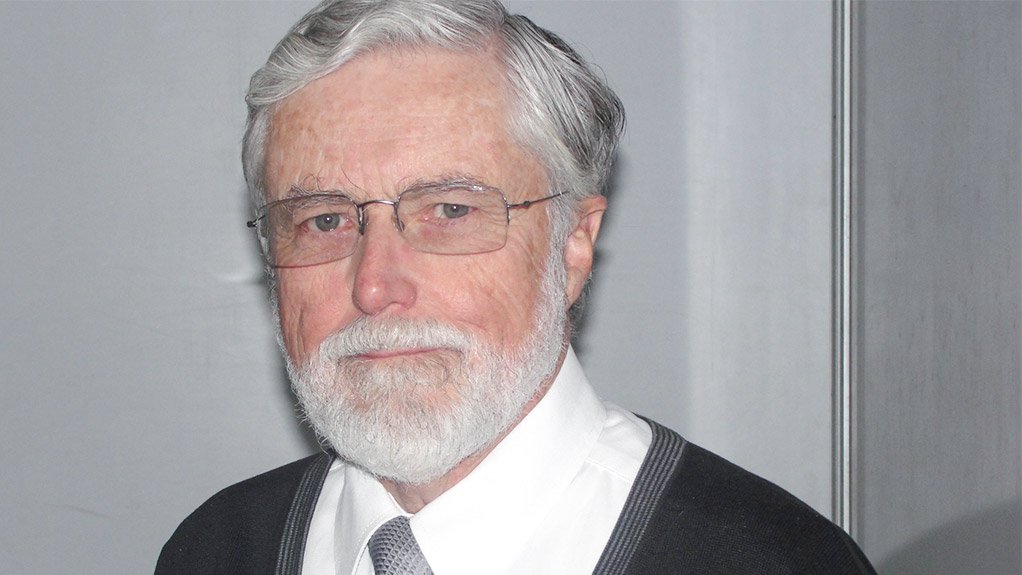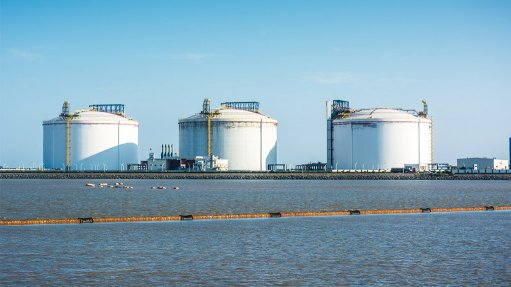New orders for RTS Africa principal Nel’s hydrogen filling stations internationally ‘fuelling’ hydrogen-powered vehicle trend
This article has been supplied as a media statement and is not written by Creamer Media. It may be available only for a limited time on this website.
The era of fossil-fuelled transportation is drawing to a close. Climate change concerns and dwindling liquid hydrocarbon reserves will undoubtedly change the patterns of personal and commercial transportation in the future. While there are sound cases to be made for the adoption of transportation alternatives such as battery-powered electric vehicles (EVs) - as well as for hydrogen-powered fuel cell vehicles (FCVs) - the latter type holds the better potential for diminished environmental harm in the longer term.
Managing Director of RTS Africa Engineering, Ian Fraser, explains that both battery-powered cars and hydrogen-powered cars run on electric motors. “So the issue is where the electricity comes from?” he asks. In both cases, the electricity can come from either clean or contaminating resources, either renewable energy or coal-burning power stations.
A FCV converts hydrogen, which has been generated either by electricity or a steam reformer, into electrical energy. There are various methods of generating hydrogen, however the cleanest method splits water into hydrogen and oxygen, by passing an electric current through water. The hydrogen is then used in the FCV fuel cell to generate electrical power. The only emission from this process is water.
Proponents of battery power maintain that there are no emissions from EVs either. “However, batteries have a limited life cycle, and spent batteries contain environmentally unfriendly chemicals such as lithium and cobalt. There are certain battery parts that can be reused but a large proportion of battery waste products will end up in landfills,” Fraser explains.
In a fuel cell on the other hand, the only replaceable part is the catalytic membrane, which is made of a platinum group metal such as palladium or platinum, metals that can be recycled and used to build a new fuel cell. The result is that there is no environmental fallout from the process.
Critics of EVs explain that while the EV does not itself burn fossil fuel, at present they are reliant on power sourced from coal-burning power stations. “In the long run, however, hydrogen cars are a very much cleaner option,” Fraser adds.
Refuelling both FCVs and EVs has been an issue globally and certainly here in South Africa. Even overseas, at present, battery-powered vehicles have the advantage in that there are more EV charging stations then there are hydrogen refuelling stations. The major stumbling block that stands in the way of the use of both EVs and FCVs is the carrying capacity of national power grids. “In both cases, you are now converting the energy from the grid into energy to drive vehicles. Our local alternating current grids are not up to that at present,” Fraser asserts.
“National electrical reticulation systems will have to be significantly upgraded to handle all this energy that is theoretically going to be pumped into alternative-energy-powered cars.”
A factor that is making the proliferation of FCVs rather more remote at this stage in South Africa - and in comparison to the EV - is the matter of either refuelling or recharging the vehicle. To set up the charging system for a battery-powered car requires a simple charger - albeit a comparatively large one. Whereas, hydrogen filling stations require the creation of hydrogen by electrolysis on site, and the storage and the dispensing of hydrogen through pumps that closely resemble current petrol pumps.
The alternative possibility to generating hydrogen at refuelling station sites is to deliver it in tankers to filling stations. To allay concerns about the safety of bulk hydrogen transport Fraser explains that hydrogen bulk transport is much safer than the current bulk transportation of petrol.
“However, bulk transport would be more expensive, and the first prize would be to solve the grid problem and generate hydrogen at the dispensing point,” he adds. An exciting move in this direction has come from one of RTS Africa’s most long-standing international principals, Nel Hydrogen- a dedicated hydrogen company delivering solutions to produce, store and distribute hydrogen from renewable energy.
Nel recently received an order from Nikola Motor Company for two demonstration refuelling stations to provide hydrogen to Nikola’s fleet of prototype hydrogen vehicles.“This order is the first part of an initiative aiming at developing low-cost renew able hydrogen production and fuelling sites, for the potential development of 16 large-scale sites with a capacity up to 32 tons of hydrogen a day,” Fraser explains.
The initial two demonstration stations will each provide one ton of hydrogen to Nikola Motor’s prototype trucks and serve as design verification for Nel’s mega-scale concept. This solution will be jointly developed and scaled into the world’s most efficient network of low-cost hydrogen production and fuelling sites.
For the mega-stations, Nel will incorporate its clustering concept, where eight Nel A-485 electrolysers are integrated into one unit, to achieve lower capex levels. Nikola has an initial target to build 16 of the mega-scale hydrogen stations between 2019 and 2021, with a minimum of eight units of the Nel A-485 electrolyser per site. The solution is scalable to a maximum of 32 units of the Nel A-485 electrolyser per site, equalling a production capacity of up to 32 tons of hydrogen per day. The delivery of the demonstration stations is intended to start in the second half of 2018.
The greater availability of hydrogen fuelling stations is key to unlocking the potential of FCVs. A FCV has a range of some 600 km and once at its destination refuelling takes a minute or two. EVs do not have the same range and to recharge them properly takes a couple of hours, Fraser explains.
“With very rapid charging, an EV can be recharged in as little as 15 minutes, but that is not good for the batteries,” he adds.
“I think it is optimistic to think that battery technology can be improved much further by making lighter and more efficient energy storage solutions,” he continues. Fraser points out that in South Africa, hydrogen transportation technology would be very useful in applications such as servicing the taxi industry and in large opencast mines, where a number of haul trucks operate in a limited radius. A single Nel filling station could, for example, serve the fuel needs of an entire fleet. With these applications, it would not be necessary to set up a massively dispersed suburban and urban filling station network.
“These two applications alone could serve as a stepping stone to the realisation of the value of hydrogen technology in transportation and also serve to usher in a cleaner, more environmentally- friendly future,” Fraser concludes.
Comments
Press Office
Announcements
What's On
Subscribe to improve your user experience...
Option 1 (equivalent of R125 a month):
Receive a weekly copy of Creamer Media's Engineering News & Mining Weekly magazine
(print copy for those in South Africa and e-magazine for those outside of South Africa)
Receive daily email newsletters
Access to full search results
Access archive of magazine back copies
Access to Projects in Progress
Access to ONE Research Report of your choice in PDF format
Option 2 (equivalent of R375 a month):
All benefits from Option 1
PLUS
Access to Creamer Media's Research Channel Africa for ALL Research Reports, in PDF format, on various industrial and mining sectors
including Electricity; Water; Energy Transition; Hydrogen; Roads, Rail and Ports; Coal; Gold; Platinum; Battery Metals; etc.
Already a subscriber?
Forgotten your password?
Receive weekly copy of Creamer Media's Engineering News & Mining Weekly magazine (print copy for those in South Africa and e-magazine for those outside of South Africa)
➕
Recieve daily email newsletters
➕
Access to full search results
➕
Access archive of magazine back copies
➕
Access to Projects in Progress
➕
Access to ONE Research Report of your choice in PDF format
RESEARCH CHANNEL AFRICA
R4500 (equivalent of R375 a month)
SUBSCRIBEAll benefits from Option 1
➕
Access to Creamer Media's Research Channel Africa for ALL Research Reports on various industrial and mining sectors, in PDF format, including on:
Electricity
➕
Water
➕
Energy Transition
➕
Hydrogen
➕
Roads, Rail and Ports
➕
Coal
➕
Gold
➕
Platinum
➕
Battery Metals
➕
etc.
Receive all benefits from Option 1 or Option 2 delivered to numerous people at your company
➕
Multiple User names and Passwords for simultaneous log-ins
➕
Intranet integration access to all in your organisation





















